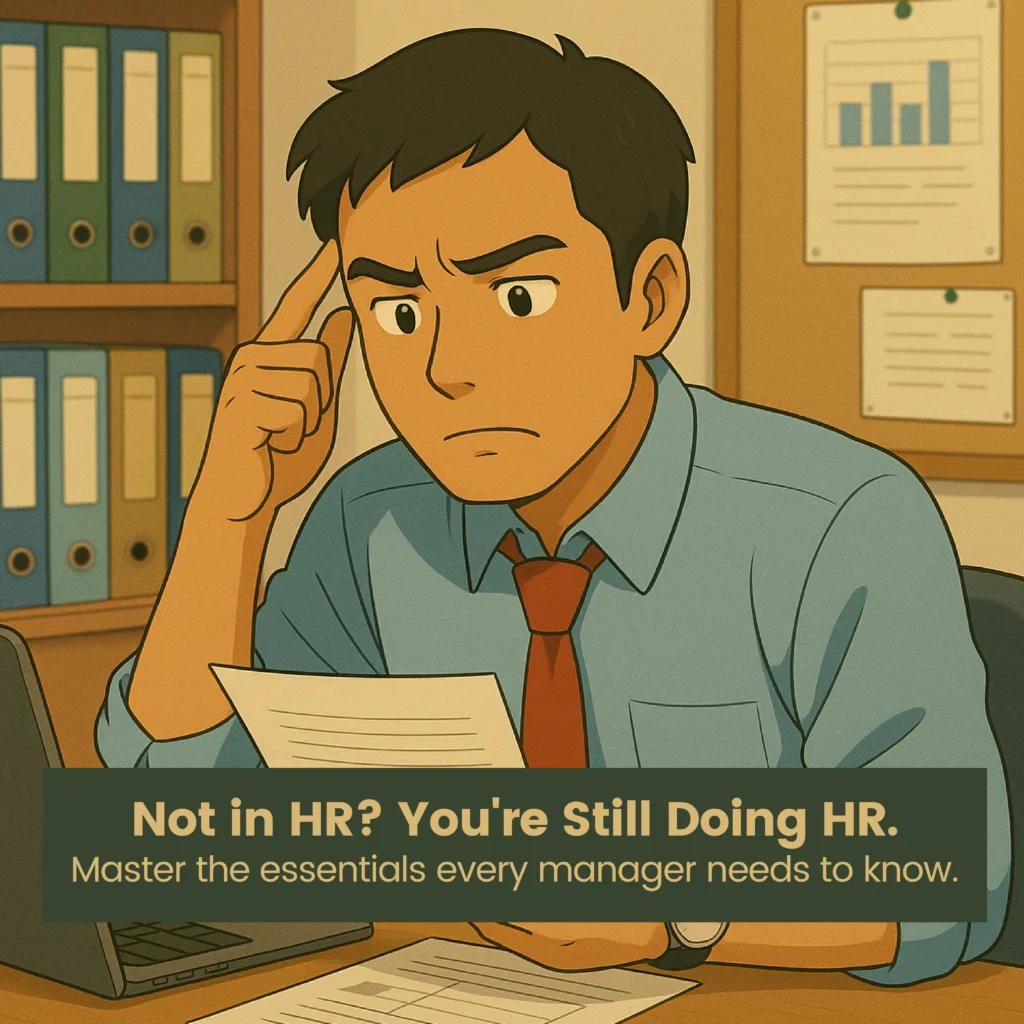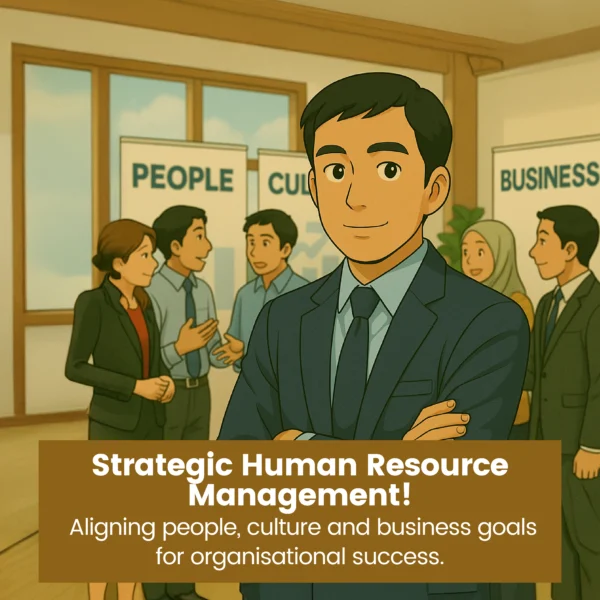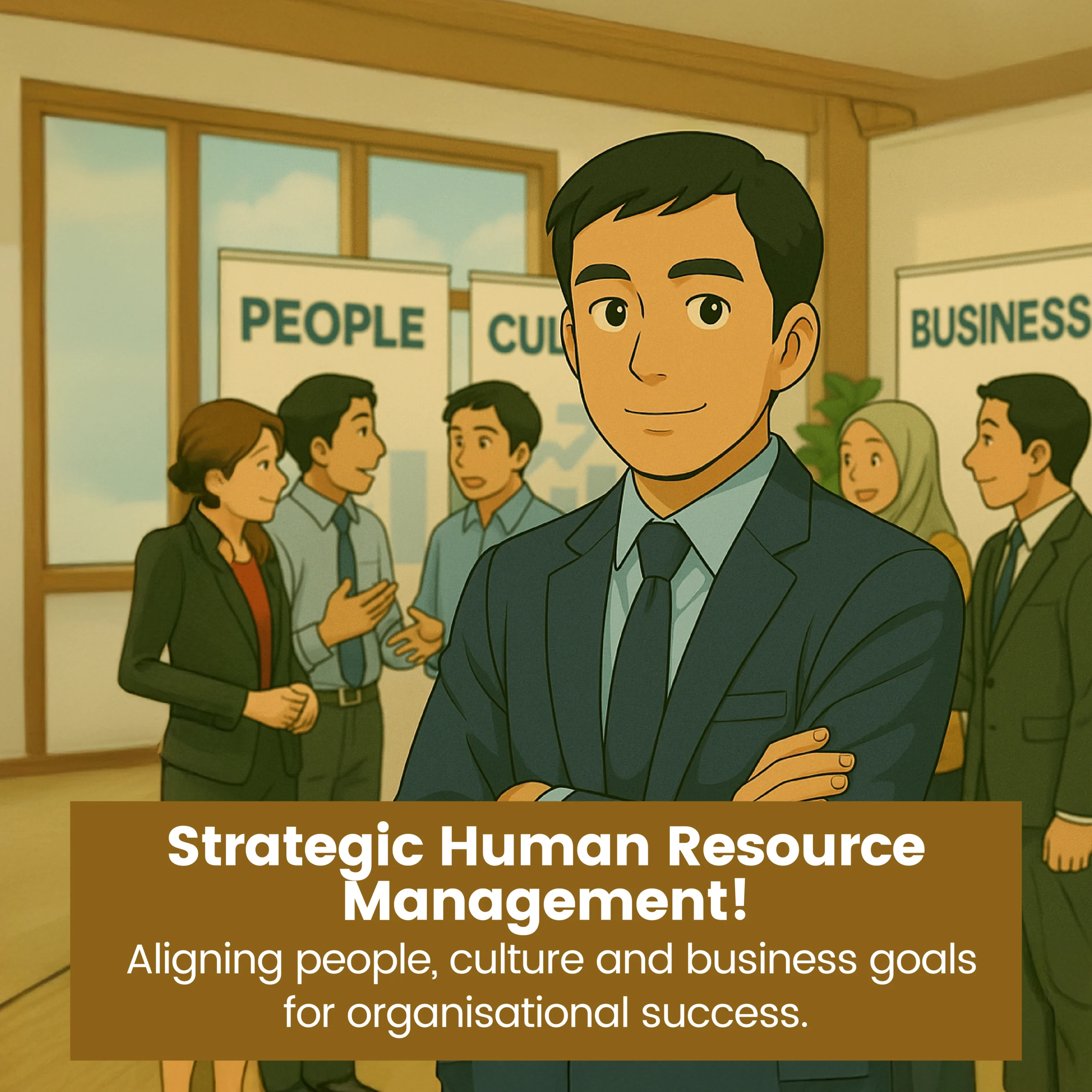What Does HR for Non-HR Managers Really Mean?
Key Areas You Need to Know
- Recruitment and Selection
- Performance and Engagement
- Employment Laws
- Discipline and Grievances
- Compensation and Benefits
Why This Knowledge Matters
This isn’t just about knowing policies. It’s about applying them fairly, staying compliant, and managing people effectively.
The responsibility for “people issues” no longer rests solely with the HR department. Today, HR for Non-HR Managers is not just a nice-to-have. It’s essential.
However, no matter your role, whether you’re a team lead, manager, or department head, you deal with HR every day through hiring, reviewing performance, managing time off, and handling tough conversations.
The Challenge Most Managers Face
Therefore, here’s the challenge: most managers haven’t been trained to navigate these HR responsibilities. That’s where this guide comes in.
It will help you understand the basics so you can lead better, stay compliant, and grow as a people-first leader.
These include:
- Understanding the recruitment and selection process
- Managing employee performance and engagement
- Navigating employment laws and policies
- Handling discipline and grievances fairly
- Supporting compensation and benefits decisions
It’s about equipping managers with the tools to foster a compliant, productive, and positive work environment.
Key HR Areas Every Manager Should Master
1. The Evolution of Human Resources
HR is no longer just administrative. It’s strategic. Managers today play a pivotal role in workforce planning, culture-building, and aligning team goals with business objectives.
Why it matters: Managers need to be proactive partners in HR strategies to improve talent retention and engagement.
2. Let’s talk about recruitment and selection. It’s not just about hiring fast.
Hiring the right person isn’t just about filling a vacancy. It’s about:
- Creating accurate job descriptions
- Understanding fair and compliant hiring practices
- Knowing how to conduct structured interviews
Tip: A bad hire can cost your company up to 30% of the employee’s first-year salary.
3. Employee Engagement and the Psychological Contract
Unexpected resignations from strong team members are usually not random. They point to unmet expectations and a damaged psychological contract.
Managers play a critical role in:
- Creating a culture of trust
- Recognizing employee contributions
- Next, consider the importance of addressing burnout before it spreads.
Read our guide on boosting employee engagement through effective feedback.
4. When it comes to Compensation and Benefits: It’s More Than Just Money.
Managers frequently approve bonuses, salary adjustments, and overtime. However, do they fully understand the broader impact of these decisions?
- Pay equity laws?
- Non-monetary benefits that motivate teams?
- Transparent reward systems that build trust?
Understanding total compensation helps managers make informed, fair decisions. Learn more in Mastering Payroll Administration in Malaysia.
5. Managing Discipline with Fairness and Confidence
Conflict is a natural part of any workplace. On the other hand, poor handling can result in legal risks or damage team morale.
As a manager, you must:
- Know how to document and escalate issues
- Apply disciplinary procedures fairly
- Avoid bias or knee-jerk decisions
Pro Tip: Affirmative action goes beyond HR policies—it begins with everyday leadership at the front lines. For more on the challenges new managers face and how to set fair, inclusive practices from day one, check out First‑Time Manager Transition Challenges.
6. Malaysia Employment Law: What You Must Know
From the Employment Act to Sarawak and Sabah ordinances, Malaysian employment law governs working hours, leave entitlements, terminations, and more.
Every manager should understand:
- The legal implications of their HR decisions
- How to handle probation, resignation, and dismissal correctly
- What constitutes wrongful termination
Visit the official portal of the Department of Labour Malaysia for detailed legal references.
7. Industrial Safety and Security in the Workplace
A safe working environment isn’t just the safety officer’s job. Managers should be able to:
- Recognize and report hazards
- Support workplace health policies
- Promote a culture of safety and accountability
HR is Every Manager’s Job
Understanding HR for Non-HR Managers isn’t about adding more work to your plate. It’s about becoming a better leader. With the right knowledge, you can build stronger teams, navigate issues legally and ethically, and support your company’s growth.
At its core, managing people is managing HR. Let’s work on doing it more effectively, together.
Frequently Asked Questions (FAQs)
What is HR for Non-HR Managers?
It’s about giving managers the HR fundamentals: hiring, performance management, and legal compliance.
Why do managers need HR knowledge?
Why does this matter? Each decision a manager makes shapes the team, the culture, and compliance. Without HR basics, they risk poor decisions or even legal trouble.
Is HR training necessary for all managers?
Absolutely. HR knowledge helps managers avoid costly mistakes, build engaged teams, and align people practices with company goals.
Does this apply to small businesses too?
And yes, in SMEs, managers often wear multiple hats. As a result, HR awareness becomes even more important.
Learn More About the Training Programme →














